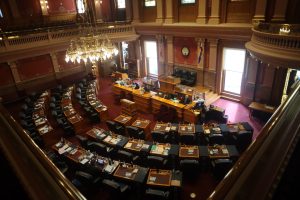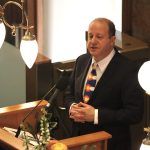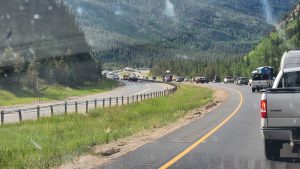Why the ‘big, beautiful bill’ could drive Colorado lawmakers into a special session
Legislators say they may need to reconvene before next year to deal with the budgetary fallouts caused by the new federal tax law
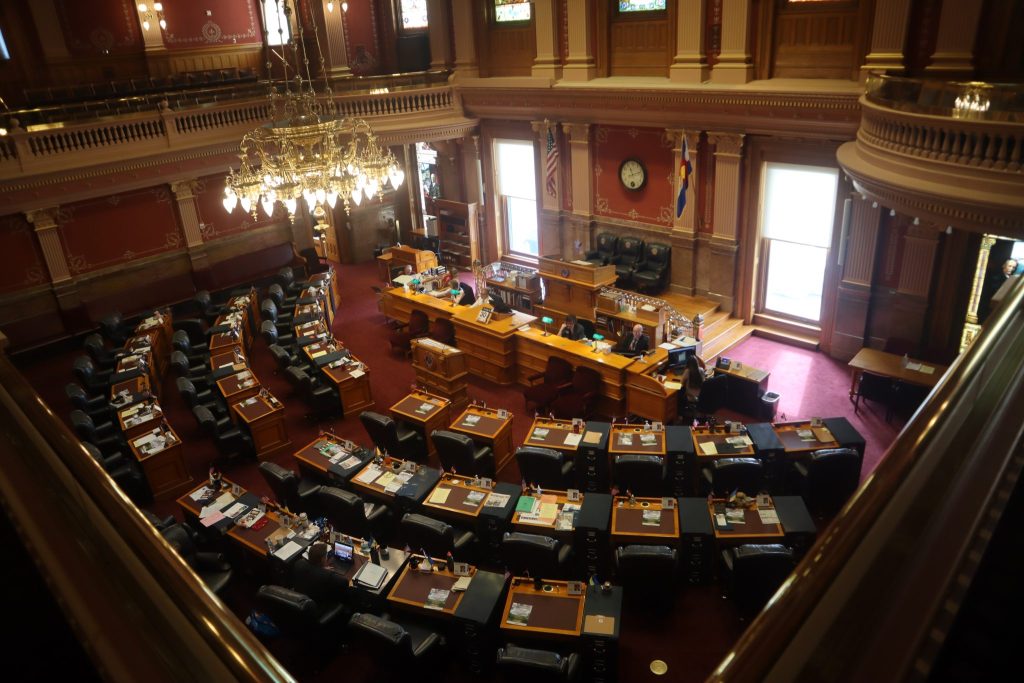
Robert Tann/Summit Daily News
After two years of back-to-back special sessions, Colorado lawmakers may be headed for another one, this time to deal with the fallout of congressional Republicans’ tax and spending cut law.
Lawmakers, who wrapped up the regular 2025 legislative session on May 7, had warned for months that they may need to convene again before the end of this year if Republicans passed their sweeping domestic policy bill, which carries much of President Donald Trump’s second-term agenda.
After narrowly winning approval in the House and Senate, Trump signed the measure — his “one big, beautiful bill” — on July 4, making permanent his 2017 tax cuts and creating new, temporary tax deductions for overtime pay and tips. The law also boosts funding for immigration enforcement measures, rolls back clean energy subsidies, and mandates the leasing of more public lands for oil and gas development.
To help pay for the suite of tax breaks, the law reduces federal spending on Medicaid and food assistance, which Colorado Democrats say will exacerbate an already grim budget situation for the state.
Gov. Jared Polis has previously indicated that a special session may be necessary to deal with the funding cuts but has not laid out a timeline for when that could happen. If legislators are called back to the Capitol, it would be the third consecutive special session since 2023. Special sessions were held in 2024 and 2023 to pass property tax relief measures.
Eric Maruyama, a spokesperson for Polis’ office, said in a statement that the governor’s team is “still reviewing the impacts of this new law to evaluate next steps, including a potential special session.”
Maruyama said Polis “has been open about the sad reality that the state can’t make up for the funding that President Trump and Republicans are taking away from Coloradans.”
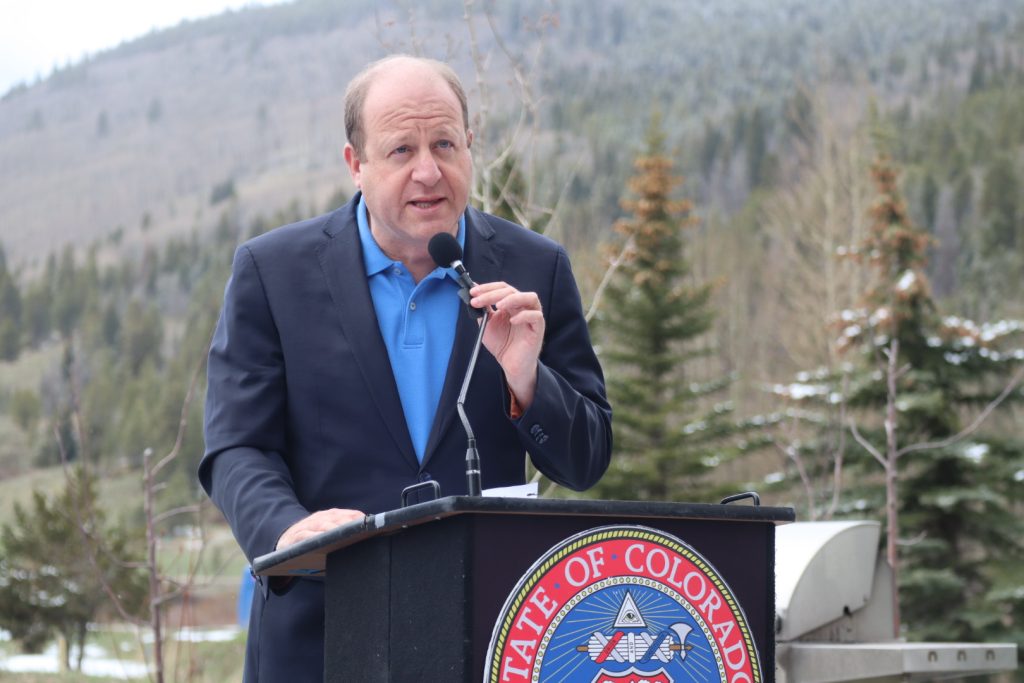
Some lawmakers think a special session is inevitable.
In a statement earlier this month after Congress passed the tax bill, State Sen. Jeff Bridges, a Greenwood Village Democrat who chairs the powerful Joint Budget Committee, said the legislation “will almost certainly force us into a special session to make deep cuts to Colorado’s already tight budget.”
Sen. Dylan Roberts, a Frisco Democrat who chairs the Senate Majority Caucus, said he has heard rumors of a special session but has yet to hear anything official from Senate Democratic leadership.
“Part of that is because the bill that Republicans in Congress and Donald Trump passed is so gigantic and complicated and contains so many changes that, I think every state, including Colorado is still digesting what is in there, when those impacts take place, how deep the cuts are and what, if anything, we can do at the state level to respond or adjust,” Roberts said.
Republicans have defended the tax law, framing the Medicaid changes not as a cut, but a way to refocus the program on vulnerable populations and weed out waste, fraud and abuse.
The nonpartisan Congressional Budget Office, however, estimates the law will cut Medicaid by around $1 trillion by 2034, while the Supplemental Nutrition Assistance Program, formally known as food stamps, could lose $186 billion.
Much of that will be achieved through new work requirements, which could result in millions of Americans losing their Medicaid and SNAP benefits, as well as shifting more of the programs’ costs to states.
Ongoing budget woes
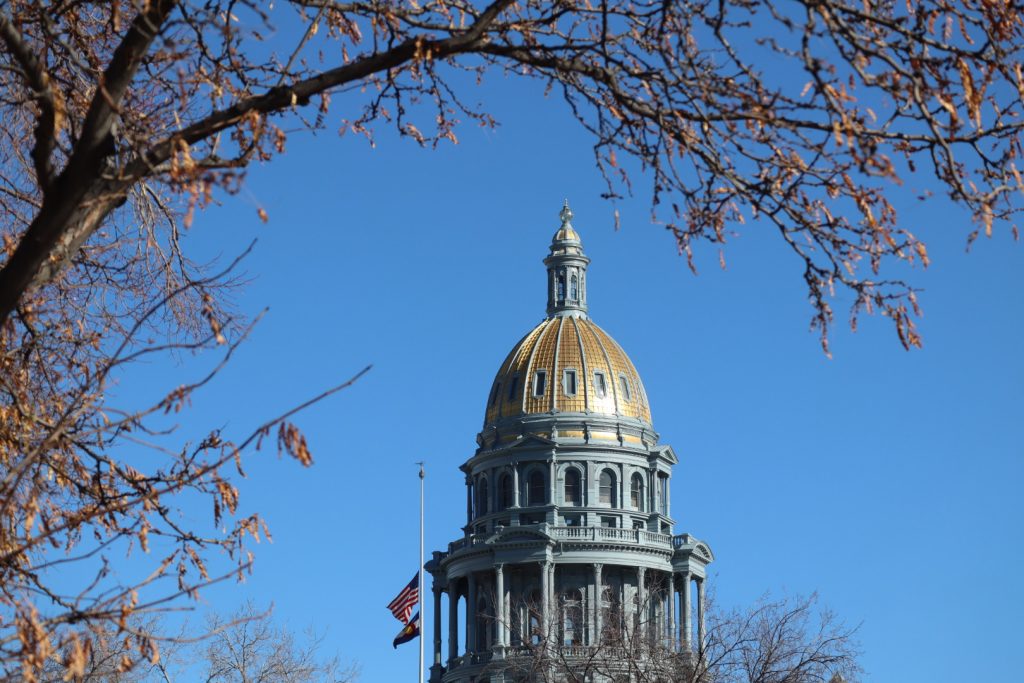
Taken together, the tax law’s provisions could decrease annual state revenue in Colorado by as much as $500 million while increasing the state’s costs by up to $650 million annually, resulting in a more than $1 billion hit to the state’s budget every year, according to the governor’s Office of State Planning and Budgeting.
That comes as Colorado faces what fiscal analysts expect will be a multi-year budget deficit.
State lawmakers were already forced to close a $1.2 billion shortfall in this year’s budget by shifting spending timelines and slashing some non-essential programs, which ultimately avoided deep cuts to health care and education.
Economic forecasters predicted Colorado could be looking at a smaller deficit of around $700 million in 2026, but that figure will now balloon following the passage of the tax bill.
Making matters more challenging is the Taxpayer’s Bill of Rights, a 1992 voter-approved amendment to the state Constitution that caps how much money the state can take in.
Democrats, who control both the state House and Senate by comfortable margins, say it will force them to make painful decisions in order to maintain a balanced budget, which they are required to do under the state Constitution.
That could include limiting a property tax exemption for seniors and veterans, increasing higher education tuition, reducing tax credits for working families, and scaling back health care reinsurance, according to a news release earlier this month from Democratic House leaders.
Republicans, however, have countered that the state has the revenue to fulfill its needs and that budget problems are a matter of priorities.
Senate Minority Leader Cleave Simpson, an Alamosa Republican, said in a text message statement that a special session “wouldn’t be necessary had the Democrats opted to prioritize funding for the programs that actually mattered, like Medicaid, instead of choosing to fund their political pet projects.”
“Rest assured, if a special session is to be convened, the Colorado Senate Republicans are ready to return (to the) Capitol and continue our ongoing fight to bring real and tangible economic relief for the people of Colorado,” Simpson said.
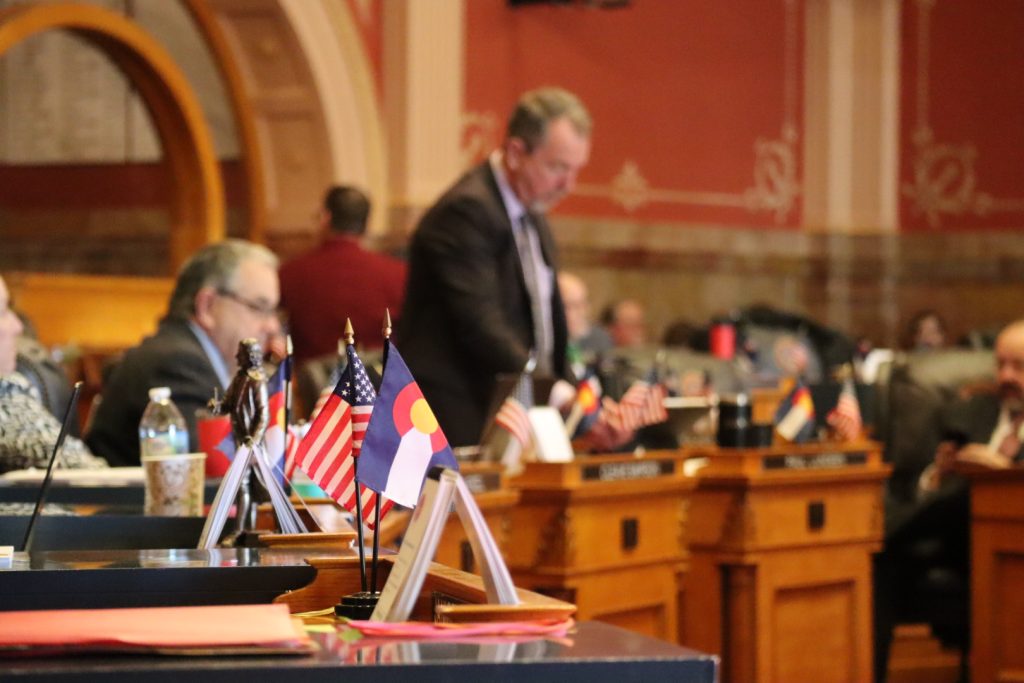
What might a special session entail?
Lawmakers will have limited options for offsetting the loss in federal funds without cutting too deeply into other programs and services.
When it comes to SNAP, Roberts said one solution that could be tackled during a special session would be revising the language of two ballot measures related to school meals.
The legislature is referring the ballot measures to voters this November, asking them to bolster funding for the state’s Healthy School Meals for All program, which provides free breakfast and lunch for school children, by allowing the state to further limit income tax reductions and keep more of the money.
“There could be something we do at the legislature to modify the health school meals for all ballot measures to try and include SNAP as a potential beneficiary of those funds,” Roberts said.
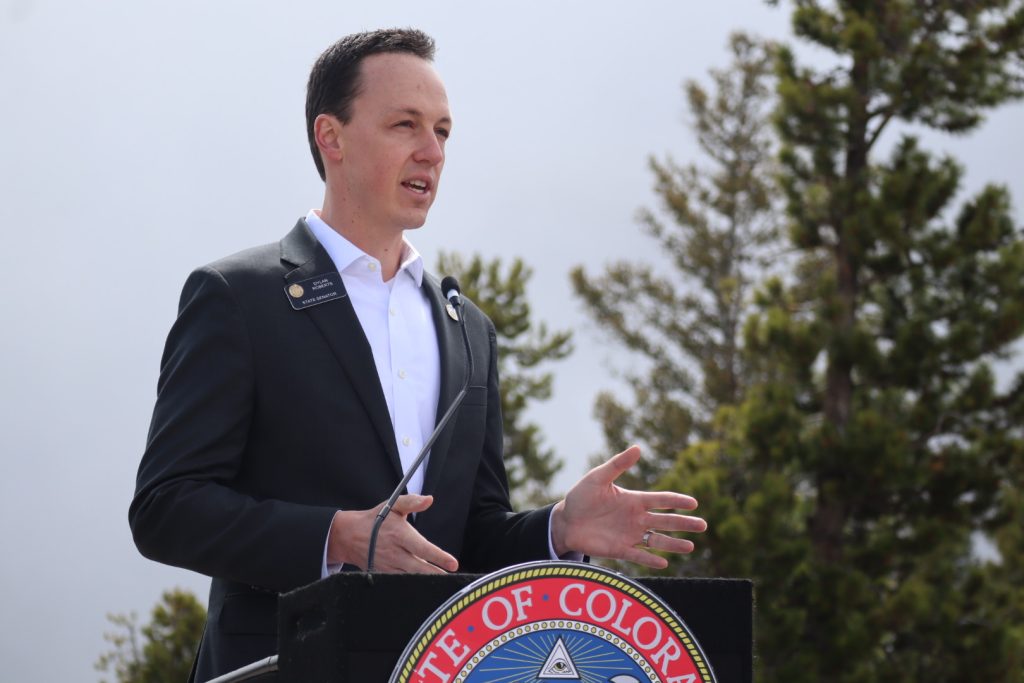
Dealing with Medicaid will be trickier, and Roberts said lawmakers will likely need more time to come up with solutions.
It takes a minimum of three days to pass a bill in Colorado, meaning a special session will last at least that long, though most only go for a few days. The past two special sessions on property taxes both lasted four days. The last time lawmakers held a special session for more than a week was in 2001, when two different sessions were held: one lasting 20 days and the other lasting 12.
While lawmakers would need to act soon to change the November ballot language to address SNAP, Roberts believes there’s time to wait until the regular 2026 session, which begins in January, to work on Medicaid funding.
That’s because the Medicaid changes aren’t slated to take effect until the very end of 2026.
“I think that’s going to require much longer than a couple of weeks of work,” Roberts said. “We can wait and do that in a more deliberative timeline in next year’s regular session.”
But he stressed that lawmakers only have so many levers to pull and that Colorado will be “in a significantly worse off position” as a result of Medicaid and SNAP cuts.
“There’s no way around the fact, whether you’re a Democrat or Republican, the ‘big, beautiful bill,’ as it’s called, is going to have an enormous impact on Colorado,” Roberts said.
He worries especially for communities in his district, which includes ski towns like Breckenridge, Vail, Steamboat Springs and Winter Park, where income disparities and a high cost of living are already squeezing working residents.
Mountain resort communities have the highest uninsured rate for health care of anywhere in the state, and many lower-income residents rely on local safety net services, like food banks and community clinics, to get by.
“I’ve talked to a few food banks and service organizations in my senate district who are very concerned about these cuts taking effect,” Roberts said.
“We know that our hospitals and our clinics on the Western Slope already have a higher proportion of medicaid patients and uninsured patients,” he added, saying that Medicaid cuts “furthers the financial strain on our rural hospitals and our rural clinics, and that means that many of them will be at risk of closing or will close.”
Another swing at AI?
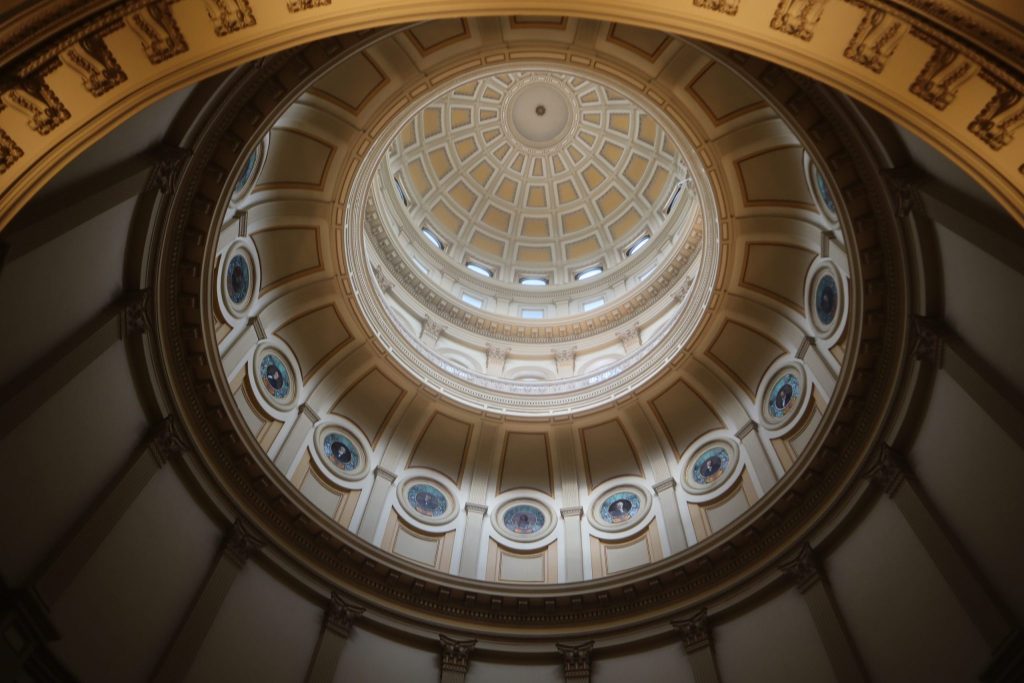
Unrelated to the “big, beautiful bill,” lawmakers may also be asked in a special session to put to bed an ongoing fight over the state’s first-in-the-nation artificial intelligence law.
The measure, passed last year and set to take effect on Feb. 1, 2026, seeks to prevent discrimination in areas like employment, education and health care that may result from AI-driven algorithms. It also places new transparency requirements on AI developers as well as companies and organizations that use those systems in their decision-making.
While proponents of the law say it will protect consumers, technology companies and other business groups have raised concerns over provisions that they say will place an undue burden on the business community.
Polis had pushed this past session for changes to the law that would strike a compromise, but those efforts failed to materialize. With the bill’s implementation date fast approaching, a special session before January may be the only time for lawmakers to act.
Roberts, who was one of the only Democrats in the Senate to vote against the AI bill, said delaying the law’s timeline via special session “would be the responsible thing to do.”
“I felt it was not quite ready for full implementation, and it’s become very clear that the details of that are not quite worked out,” he said. “We need to get this right, and it doesn’t appear that Feb. 1, 2026 is reasonable as a timeline.”

Support Local Journalism

Support Local Journalism
As a Summit Daily News reader, you make our work possible.
Summit Daily is embarking on a multiyear project to digitize its archives going back to 1989 and make them available to the public in partnership with the Colorado Historic Newspapers Collection. The full project is expected to cost about $165,000. All donations made in 2023 will go directly toward this project.
Every contribution, no matter the size, will make a difference.

